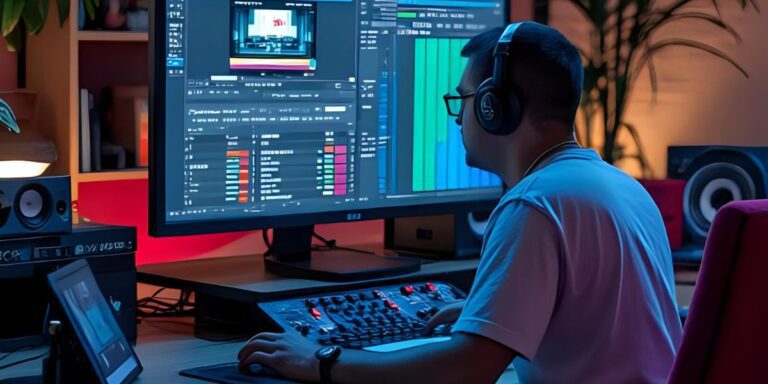The rapid evolution of artificial intelligence (AI) has been a game changer for various industries, and the music world is no exception. The integration of AI into both the creation and consumption of music has sparked a transformation, allowing artists, producers, and listeners to experience music in entirely new ways. From AI-powered collaboration tools to personalized music recommendations, AI is reshaping the way music is made and enjoyed.
In the realm of music creation, platforms like Ampollo are revolutionizing the process by offering AI-powered music collaboration services. These platforms enable musicians to work together seamlessly, regardless of their physical location, by using AI tools to streamline the creative process. With AI assisting in everything from mixing tracks to generating new melodies, artists can focus on their core creative ideas while allowing technology to handle the technical details. This leads to a more efficient and dynamic workflow, encouraging collaboration among musicians who may have never worked together otherwise.
Ampollo’s success highlights a broader trend where AI not only supports existing creative practices but also enables new forms of music creation that were once unimaginable. For example, AI can now help artists experiment with genres, styles, and sounds they might not have explored on their own. The potential for innovation is virtually endless, as AI tools continue to evolve, pushing the boundaries of what is possible in music production.
In addition to its influence on creation, AI is also transforming music consumption. Mixcloud, a platform known for its vast library of DJ mixes, radio shows, and podcasts, has significantly expanded its live-music offerings through its acquisition of Encore. This move is a clear indication of the growing role of AI in shaping the way we experience live music. With AI integrated into platforms like Mixcloud, listeners can now enjoy highly personalized live-streamed performances that are tailored to their tastes. AI-powered recommendation engines suggest music based on a user’s listening history, and even predict which live events they might enjoy. This not only enhances the listener experience but also helps emerging artists reach new audiences.
Moreover, AI’s influence extends beyond just platforms and apps. It’s also changing how we interact with music in our daily lives. Virtual assistants like Alexa and Siri can now play music based on mood, weather, or even a specific time of day, making the process of discovering new music more intuitive and personal. As AI technology becomes even more advanced, it is likely that music consumption will become even more tailored to individual preferences, creating an immersive and seamless experience for listeners.
The combination of AI tools in both music creation and consumption is pushing the boundaries of what’s possible in the music industry. As these tools become more sophisticated, we can expect even more exciting developments, from AI-assisted songwriting to the creation of entirely new genres. As AI continues to evolve, it will undoubtedly keep revolutionizing how music is made, shared, and enjoyed, making the music landscape more dynamic and accessible than ever before.


